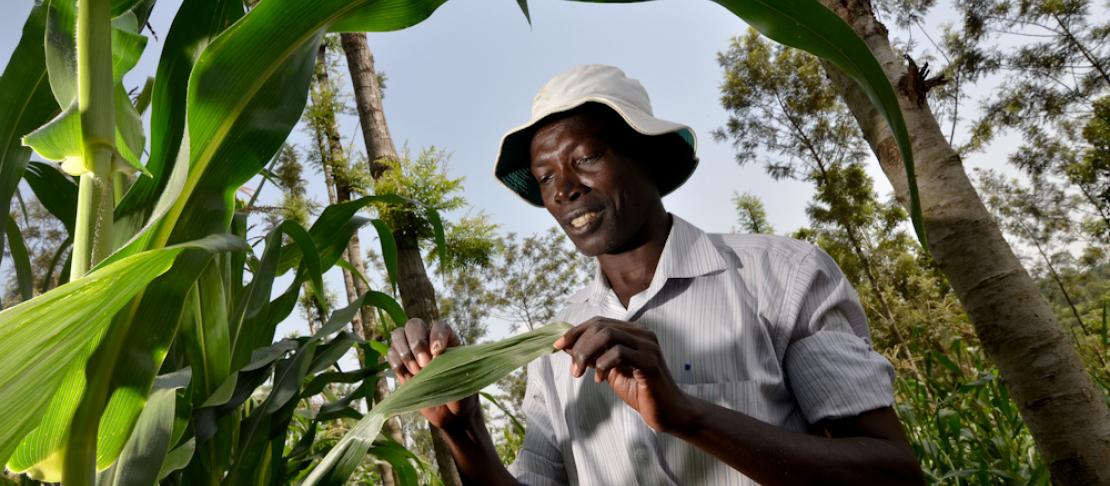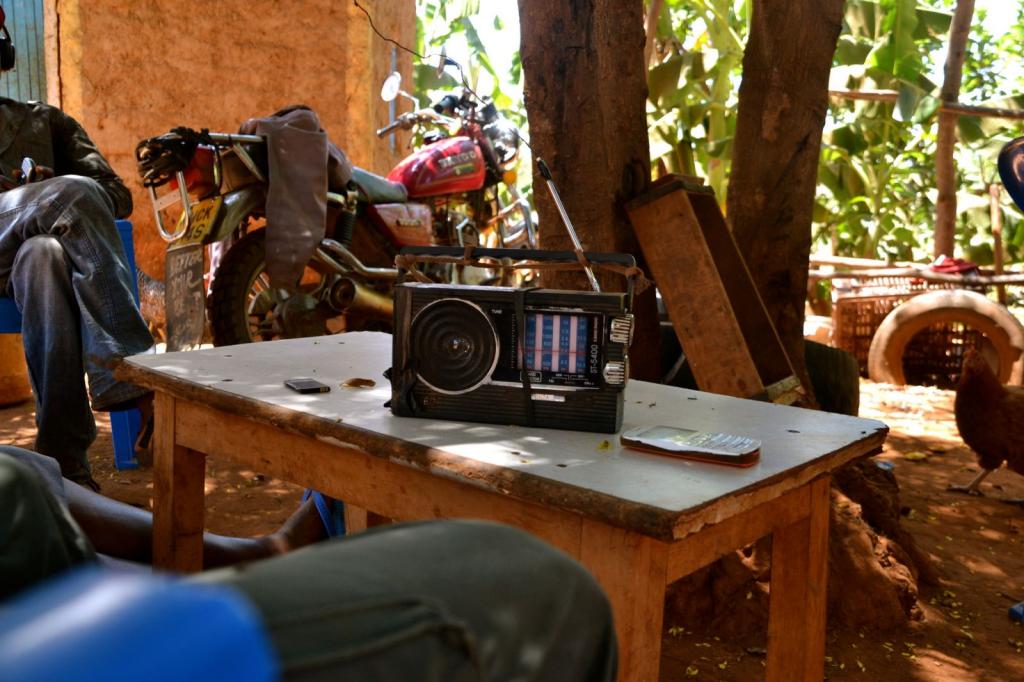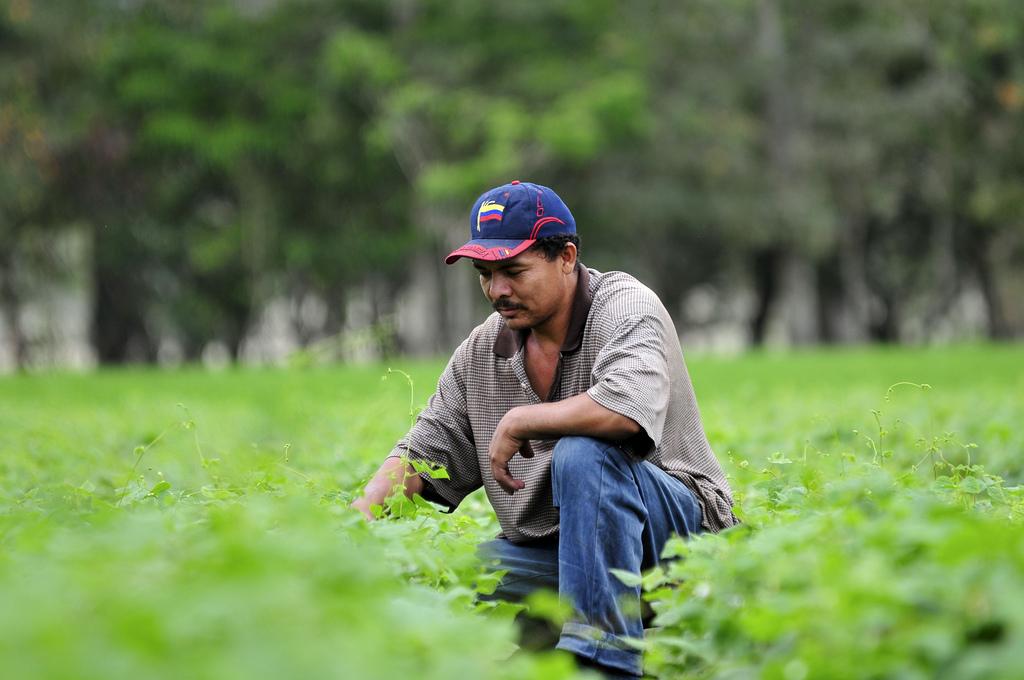Solutions to policy barriers for climate-smart agriculture

The third Climate-Smart Agriculture science conference drew on multiple knowledges and experiences help to bridge the science-policy divide around the concept.
When comparing with the first official Climate-Smart Agriculture science conference back in 2011 and where the scientific community is today, it is clear that in a short period of time there’s been sizeable progress.
Although more work is needed, the third Climate-Smart Agriculture (CSA) conference held last week in Montpellier heard stories from around the world of farmers adopting climate-smart farming practices while gathering policy-makers ready to partake and commit to the process.
Getting policy-makers onboard will ensure climate-smart farming is made part of the future and not just a fad for today.
Despite convincing advancements, questions around how to successfully move from case study findings to scaling up practices, and understanding which type of policies and institutions best support climate-smart farming, persist.
A parallel session during the conference made sure to cover these queries, supported by recent findings and presenters’ own experiences, with aim to overcome institutional and policy barriers to bridge the science-policy divide on climate-smart agriculture.
Learning from the ground-up
Starting off the session, Leslie Lipper from the Food and Agriculture Organisation (FAO), highlighted recent findings from the Economics and Policy Innovations for Climate-Smart Agriculture (EPIC) program.
The EPIC program works with research centres, governments and other institutional partners to support the transition to climate-smart agriculture. It uses economic and policy analysis when looking at impacts, effects, costs and benefits as well as barriers to adopting the CSA concept and individual practices.
The program has pioneered a climate-smart farm project, implementing practices and analysing the results from Zambia, Viet Nam and Malawi, and has a number of valuable lessons that others can learn from.
From the activities, the program has been able to outline enabling factors for farmers that will influence whether or not they pick up climate-smart practices. For example, Leslie Lipper showed how access to agriculture extension information, through either text-message services, TV, radio, or local meetings, was a recurrent factor influencing farmers’ decision-making on CSA practices, from legume-cereal intercropping, conservation farming or use of improved seed varieties.
By playing such a big part in farmers’ decision-making process, it is essential to ensure that the inherent issues around information dissemination are further investigated and addressed.
For example, better analysis on who gets the information, and what type of information is communicated, local or national rainfall indications for example, while finding solutions to potential information gaps and unequal information dissemination, is needed.

Photo: Disseminating climate-smart agriculture information via radio, TV or text-messages is key for farmers to pick up the practices. Photo: C. Schubert (CCAFS)
Collective social action and distance to district centers for agriculture support and information were also recurrent levering factors for farmers. Social networks and group action can for example support farmers with labour throughout the season, or the group jointly trials and tests a few selected climate-smart practices reducing individual farmers’ risks.
View Leslie Lipper's presentation from the Montpellier Climate-Smart Agriculture Conference:
All of these enabling factors form crucial information for policy-makers as they outline effective policies to support the implementation for climate-smart agriculture.
However, Leslie Lipper concluded that the only way to ensure climate-smart agriculture is really implemented and scaled-up is to increase and better target investment in agriculture. That’s the bottom line, she said.
But funding is only part of the puzzle.
Dr Laurent Sédogo, Executive Director at West African Science Service Center on Climate Change and Adapted Land Use (WASCAL), key partner to CCAFS West Africa, shared experiences from their work, looking at which policies and institutions are conducive for climate-smart agriculture
Creating the right policy and institutional environment
The main issue for climate-smart agriculture to be picked up and expanded across the continent is, according to Laurent, lack of scientists and people with relevant experience.
"There is no scientific support system for policy-makers and development organisations in many African countries. Few can support a prioritization of practices or support development of sound climate-smart agriculture policies," he said.
Climate-smart agriculture implementation also needs stable, nationally supported institutions that take on the challenge of integrating flexible and climate-sensitive policies.
At the moment there are very few institutions, especially in West Africa, that could take this on, Laurent argued. However, regional and national climate service centres could play a key role in bridging the science-policy divide.
In the case of West Africa, Laurent said, climate service centers like WASCAL can create scientific, site-specific solutions together with local partners, while building the capacity of local scientists. The centers, he proposed, could also be responsible for bringing extension information, a key lever to farmers, working with communication and ICT tools to help share and provide the much needed knowledge.
However, much of the above comes down to political will.
In Central and South America, political will around climate-smart farming is not always a given, one audience member mentioned. Instead researchers and practitioners have to persuade policy-makers to get involved.
The situation is quite different in West Africa, said Laurent, where the situation is perhaps more dire and urgent solutions needed, with climate-smart agriculture already being declared as one of these.

Photo: Political will and support for climate-smart agriculture differ across regions and even within countries. Photo: N. Palmer (CIAT)
Key factors for implementing climate-smart agriculture
A now publicly available Nature article, led by Leslie Lipper together with researchers from the CGIAR Research Program on Climate Change, Agriculture and Food Security (CCAFS) and other institutions, outlines key factors for effective implementation of climate-smart agriculture, which might help contribute to the discussion.
At the moment there is actually not enough climate-smart agriculture research to support effective decision-making, authors argue. And the information that is available is largely inaccessible to decision-makers at the national and local levels.
In addition, the work addressing climate change impacts on agriculture is not appropriate for national and local level planning either.
Therefore, to further help bridge the science-policy divide, the paper encourages the public, private, and civil society stakeholder to act, both at the international and local level, in four areas, in order to ensure climate-smart agriculture is implemented across countries and regions:
1) Building evidence and assessment tools for climate-smart agriculture
2) Strengthening national and local institutions
3) Developing coordinated and evidence-based policies
4) Increasing financing and its effectiveness
To ensure a country or region has an enabling policy environment, there needs to be an alignment across policy domains, facilitated by dialogue across relevant ministries to address trade-offs and overlaps.
Coordination is particularly important among national agriculture policies, strategies and investment plans and climate change instruments including national adaptation programmes (NAPS) and national appropriate mitigation action (NAMAs) and climate change investment plans.
As a way to ensure climate-smart agriculture research informs, and better support policy-making, many of these actions have been included as research activities under CCAFS flagship Policies and Institutions for Climate Resilient Food systems.
Related Reading:
- Project's quest to understand how climate science, policy and practice interact
- How climate-smart farming in Kenya influences better policy-making
- New knowledge sharing platform helps Mali rig better defense against climate change
- Andean countries join forces to strengthen policies in the face of future scenarios
Written by Cecilia Schubert, Communication Officer for Flagship on Policies and Institutions for Climate Resilient Food systems.



